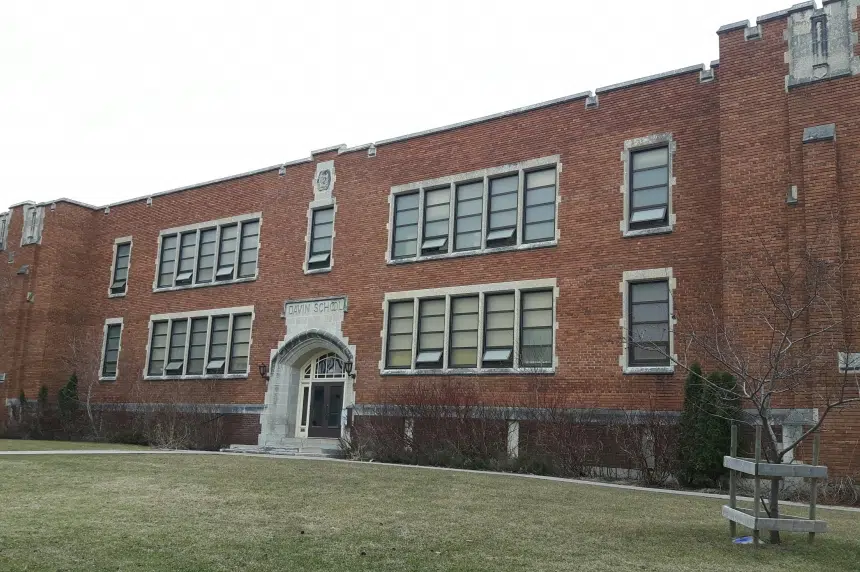Davin School in Regina is named after the man who wrote the report that inspired the residential school system, and that revelation is stirring a debate over changing the name.
Marc Spooner is an education professor at the University of Regina and he argues the name of Nicholas Flood Davin has no place being the name of a school.
“He was the one who advocated and did the architecture for what became the Indian Residential Schools, and as we know in 2015, the Truth and Reconciliation Commission found those to be cultural genocide – that’s the official Canadian record,” Spooner explained.
Spooner lives in the area and passes by the school every day. That’s why he started investigating the man it was named after. Davin was a Member of Parliament and the founder and editor of the Regina Leader newspaper in the 1880s. But Spooner said reading the Davin Report made him want to call for a change because Davin wrote that Indians were “not smart and too lazy to learn”.
Even though other public buildings across Saskatchewan and Canada are named after historical figures that made well-documented racist speeches and were often involved in other racist policies throughout history, Spooner says this is different.
“To me a school has to be a higher standard, that there can be no tolerance for discrimination when you’re talking about a school, everyone has to be accepted like they can fully learn and be members of society,” Spooner said.
Spooner suggests that when people in the school community hear about Davin’s legacy they are horrified and many would support a name change.
Talking to parents outside Davin School on Wednesday, most said they didn’t know anything about who the school was named after. Several declined to comment, saying they don’t know enough about the issue to speak about it.
One mother said she had heard a little bit about the debate and would support a change.
“I’m not a fan to be honest, and when I heard that they were thinking of changing the name, I was up for that for sure,” said Sierra Dolter, after picking up her child from school.
She said as a mother of a daughter who is aboriginal, the issue of residential schools is very important to her.
“I think it’s very important to change the name, learning more of the history of this man,” Dolter commented.
When she overheard the conversation with her mom after school, another little girl asked why anyone would want to change the name of her school. She said she wanted it to stay the same. When asked who the school is named after, she shook her head and said she didn’t know.
The majority of callers to Gormley and MainStreet on News Talk Radio disagree with the proposed change, saying that it doesn’t solve anything.
“I think we should just leave it the way it is. I think we spend too much time in this country apologizing, saying we’re sorry and trying to be politically correct,” argued Terry. “Maybe we should just all grow up a bit and get on with the business of running the country and moving forward.”
John in Saskatoon argued that changing the name of the school now wouldn’t make any positive difference.
“We all know residential schools were bad, it was horrible – at the time, they obviously didn’t think so,” he said, suggesting that bringing attention to the name now just brings up bad feelings. “We have to stop re-victimizing people over and over again, and every time you keep bringing things up, it just re-victimizes people. We have to move ahead, move forward, let’s do things right.”







